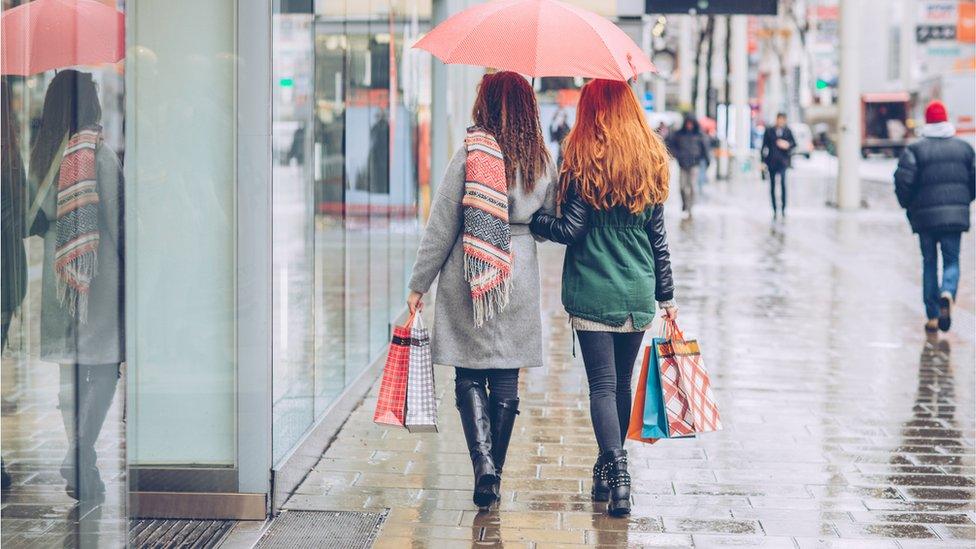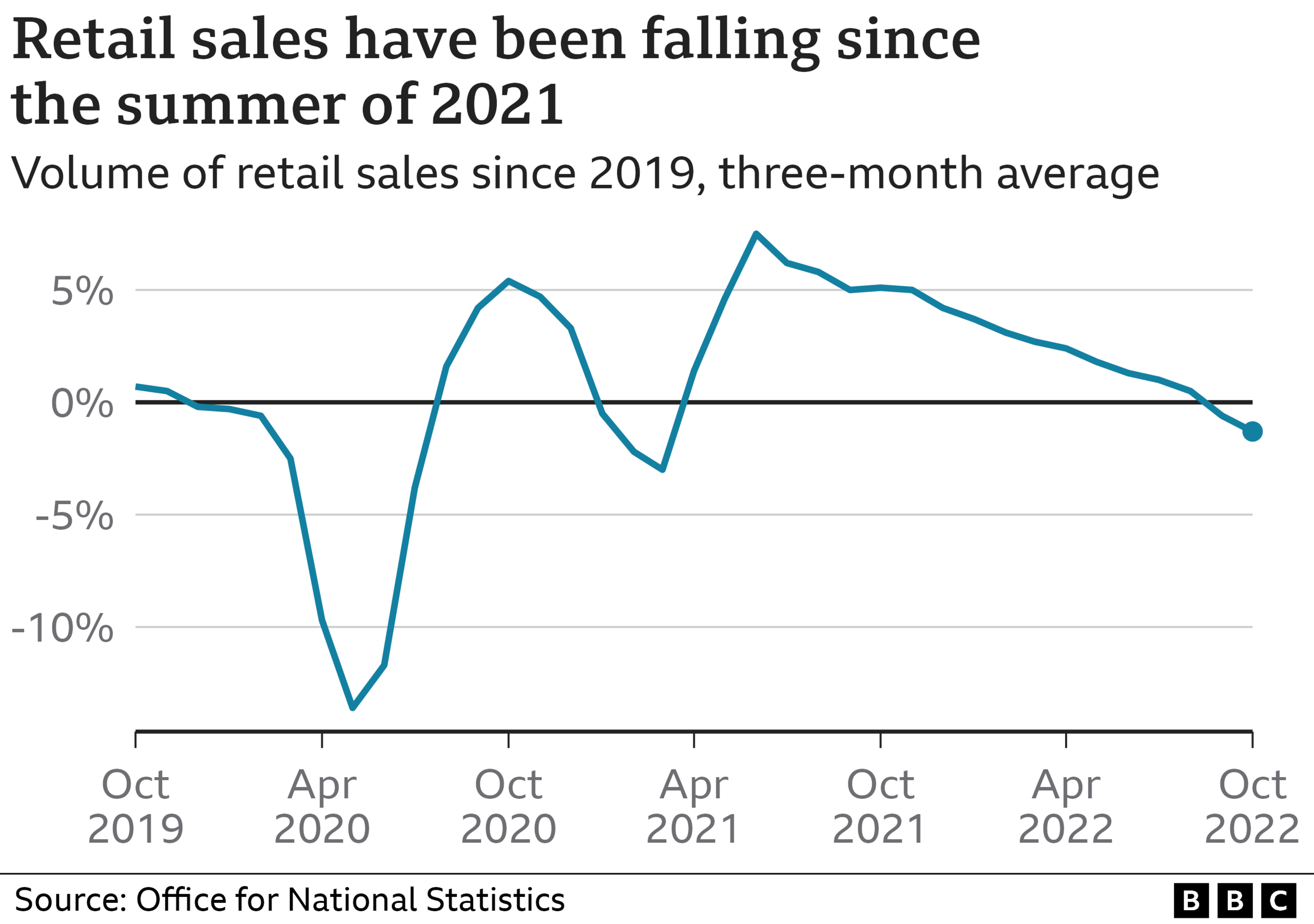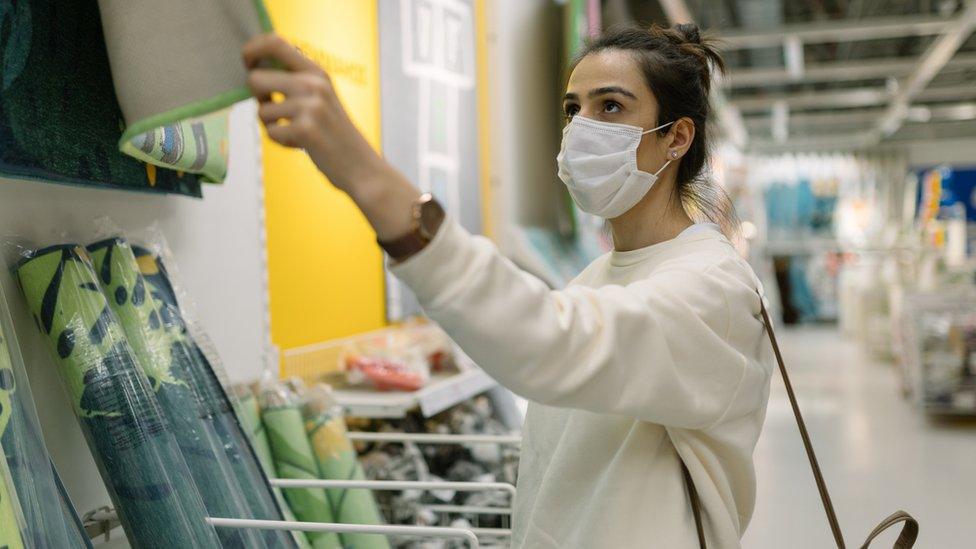Retail sales rise but stores could face difficult Christmas
- Published
- comments

Retailers could face a tough Christmas this year as the soaring cost of living hits households, analysts have warned.
Retail sales rose 0.6% in October, latest figures show, but this followed a drop in sales the previous month when shops closed for the Queen's funeral.
Despite October's rebound, the Office for National Statistics (ONS) said sales remain below pre-pandemic levels.
Analysts said October's rise could be a "false dawn" and the key Christmas trading period could be "difficult".
The UK's inflation rate, which measures how quickly prices are rising, hit 11.1% in October - the highest for 41 years - and the government has said the country is in an economic recession.
The latest ONS figures said sales volumes rose by 0.6% in October following a 1.5% drop in September.
Darren Morgan, director of economic statistics for the ONS, said the October rebound in sales was mainly due to September's sales being affected by the extra bank holiday for the state funeral.
"Looking at the broader picture, retail sales continue their downward trend seen since summer 2021 and are below where they were pre-pandemic," he added.
The ONS said sales volumes in the August to October period fell by 2.4% when compared with the previous three months.

Gabriella Dickens, senior UK economist at Pantheon Macroeconomics, said the rise in sales in October would "prove a false dawn".
Lynda Petherick, head of retail at Accenture in the UK & Ireland, said: "Despite Black Friday coming up next week, it's unlikely that retailers will be in celebration mode as we head into the festive season this year.
"Rising inflation and the fall in real wages will only be adding to the sense of unease over whether this will be a 'golden quarter' after all.
"With further price rises expected, businesses may feel like they are already doing all they can in what is likely to be a difficult Christmas trading period."
Petrol and diesel sales rebounded in October and non-food stores sales increased, the ONS said though both remain well below the pre-pandemic levels of February 2020.
However, the rebound was not seen by food stores, which saw sales drop.
Non-store shops, which are mostly online retailers, saw sales increase by 1.8% after a fall in September. Unlike traditional High Street businesses, online sales remain around fifth higher than pre-pandemic levels.
The ONS also said sales were boosted last month because of "strong growth" in second-hand goods stores, "particularly auctioning houses".

Shoppers are shunning "big ticket" purchases, such as washing machines
The UK faces its biggest drop in living standards on record with wage rises struggling to keep up with inflation, and higher prices have led households to tighten their belts when it comes to spending.
It means so-called "big ticket" purchases for goods such as washing machines and sofas have been avoided in recent months.
Marks and Spencer has warned of a "gathering storm" of higher costs for retailers and pressure on household budgets.
The High Street giant has said trading will become "more challenging" and said "all parts" of retail will be affected by the UK's current economic climate, adding unviable firms would go bust.
Online furniture retailer Made.com collapsed into administration last week, resulting in 500 job losses, while clothing group Joules has also collapsed into administration, putting 1,600 jobs at risk.
- Published22 October 2021
